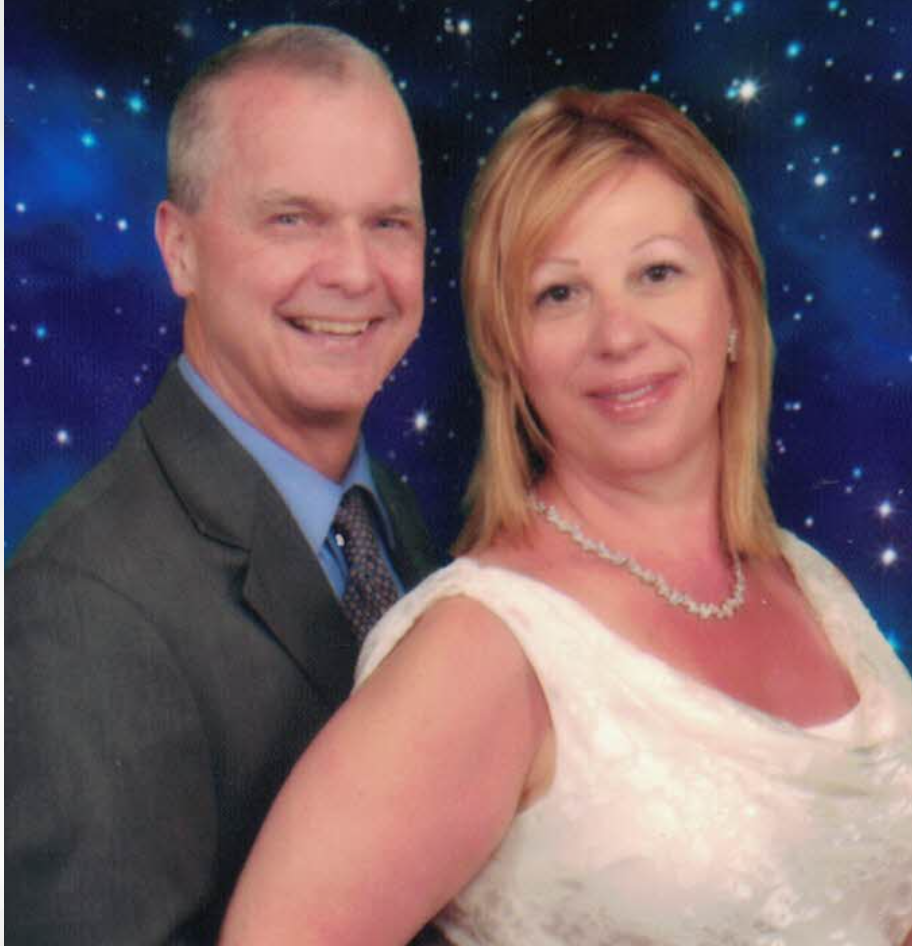Madeleine's Journey
Taking Steps in the Aftermath of Tragedy
The Decline
In 2008, Eddie was diagnosed with Depression and Obsessive-Compulsive Disorder and began to take medication. He was stable and happy for the next 11 years. “They were the best years of our marriage,” says Madeleine. However, because he felt so good and happy, during the summer of 2018, he decided to go off of his medication. Depression crept in, and he lost interest in his passions.
Eddie was also a beloved science teacher at Barbara Goleman Senior High. He taught and mentored thousands of high school students and preferred to teach students at risk, even after earning his Ph.D. in 2016. But as his depression increased, he applied for short term disability, lacking concentration or motivation to complete his lesson plans.
Madeleine was very concerned about her husband. She was eventually able to get him in to see his psychiatrist, who started him on a new medication and scheduled a follow-up visit six weeks later. She tried to find an appropriate hospital placement, but Miami lacks quality inpatient mental health resources. Eddie had repeatedly told Madeleine and others that he was not suicidal and that he “would never do that to his family.” But the dark thoughts of mental illness that overtook him on that fateful day, overshadowed his love for life, family, work, and church.
The Aftermath
The students and fellow-teachers at his school are still missing Dr. Burke’s inspiring teaching and care for them. They created a scrapbook for Madeleine, filled with letters and stories of his impact on their lives. Eddie helped plant two churches in Miami, lead the youth group at church, and played the guitar in the worship team. “My husband’s death has devastated me, my family, my church, his students. and all who knew him,” says Madeleine.
Wellspring
Madeleine’s journey of grief in the year after his death was difficult. She never returned to live in their home where Eddie had died. She lived with friends for a while and then settled into a new place. Her work as a Nurse Practitioner at Baptist Hospital has kept her distracted. “My family and friends have carried me through this time”, says Madeleine. Her children’s grief consumed them as well, affecting all of them at family gatherings.
Counseling at Wellspring has provided dependable support for her as she grieves and makes sense of it all. She says, “my therapist and EMDR have helped me tremendously with the Post Traumatic Stress symptoms”. Wellspring also provided counseling support to Pulse Church as they together grieved the loss of Eddie.
The Importance of Mental Health
Madeleine is slowly moving forward, needing to first imagine and then to create a new, unexpected life. She is beginning to find new sparks of energy through the thought of making a difference in the world by advocating for better access to mental health services. “As I have told the story of my husband’s illness and death to others, I was stunned by the realization that nearly every person I spoke with either had suffered from or was related to someone with some form of mental illness. I was also very alarmed at how many resulted in suicide. In processing and attempting to understand Eddie’s suicide, it has become more and more apparent that our community has a severe shortage of resources for mental health.”
Madeleine partnered with Wellspring to create the “Dr. Edward Burke Financial Aid Fund at Wellspring” to help provide counseling to clients who lack resources. This financial aid fund is for partial funding of Wellspring Counseling therapy sessions to promote mental health in middle and high school-aged youth, which was the age group Dr. Burke dedicated his life to serving.
Watch Madeleine’s Story:


